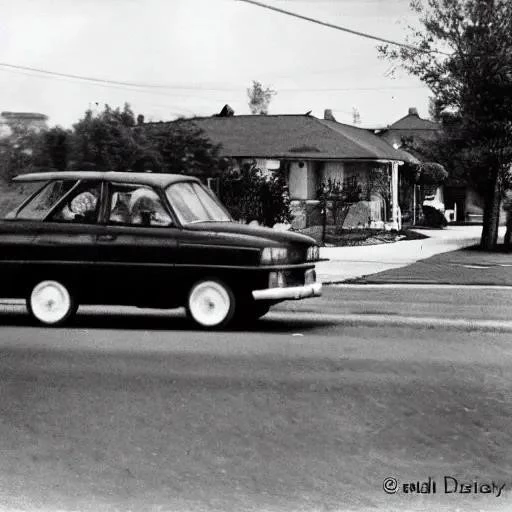
In an era of rising costs and heightened environmental consciousness, every penny saved counts. For countless drivers, the annual ritual of vehicle taxation often feels like an unavoidable burden, a fixed cost etched into the very fabric of car ownership. Yet, what if this perception, deeply ingrained for generations, were fundamentally flawed? What if, hidden within the intricate tapestry of regulations and incentives, lay significant opportunities for your car to be partially or even entirely tax exempt? This isn’t merely about avoiding a fee; it’s about embracing smarter financial stewardship, recognizing evolving policy landscapes, and potentially driving towards a more sustainable future, all while keeping more of your hard-earned money.
The landscape of automotive taxation is dynamically shifting, propelled by technological advancements, pressing ecological concerns, and governmental pushes towards greener transport solutions. From the burgeoning fleet of electric vehicles to meticulously preserved classic cars, and even specialized vehicles serving vital community functions, the pathways to exemption are more diverse than many realize. Understanding these nuanced categories isn’t just for the policy wonks or industry insiders; it’s a powerful tool empowering every car owner to make informed decisions, significantly impacting their personal finances and contributing to broader societal goals. By proactively exploring these avenues, you unlock not just savings, but a deeper comprehension of your vehicle’s true economic and ecological footprint, transforming a perceived obligation into an advantageous opportunity.
Delving deeper into these categories, we uncover compelling narratives of innovation and policy alignment. Electric vehicles (EVs), for instance, are at the vanguard of this revolution. Governments worldwide, recognizing the urgent need to combat climate change, are actively incentivizing their adoption through a myriad of tax breaks, grants, and exemptions from road tolls or congestion charges. A fully electric vehicle, producing zero tailpipe emissions, frequently enjoys complete exemption from annual road taxes in many jurisdictions, effectively making it a considerably more affordable long-term investment. This isn’t merely a gesture; it represents a profound commitment to a cleaner, quieter urban environment, fostering a burgeoning ecosystem of charging infrastructure and sustainable mobility solutions. Industry reports, like those from the International Energy Agency, consistently highlight a dramatic surge in EV sales, directly correlating with the expansion of such supportive fiscal policies.
Beyond the cutting edge, the cherished realm of classic and historic vehicles also presents a unique opportunity for tax exemption. Imagine cruising in a meticulously restored vintage automobile, not only reveling in its timeless design but also benefiting from reduced, or even eliminated, annual taxation. Many countries offer exemptions for vehicles surpassing a certain age threshold – often 30 to 40 years – provided they are maintained in their original condition and not primarily used for everyday commuting. This policy, designed to preserve automotive heritage, acknowledges the cultural value of these machines, transforming what might seem like an expensive hobby into a remarkably sustainable passion. Owners, by conscientiously maintaining these relics, become custodians of history, their efforts often rewarded by appreciative tax frameworks.
However, the scope of exemptions extends further, embracing societal welfare and essential services. Vehicles specially adapted for, or utilized by, individuals with disabilities frequently qualify for significant tax relief, ensuring that mobility remains accessible and affordable for all. These provisions, varying in generosity from region to region, underscore a compassionate approach to taxation, prioritizing human needs over blanket revenue generation. Similarly, certain categories of commercial and public service vehicles—ranging from ambulances and fire engines to agricultural machinery and public transport buses—are often granted exemptions, acknowledging their indispensable roles in keeping our communities safe, fed, and connected. By integrating insights from these varied policy applications, we discern a common thread: taxation isn’t just about revenue; it’s a powerful lever for societal good, shaping behaviors and supporting vital sectors.
Looking ahead, the discussion around vehicle taxation is evolving rapidly, driven by the shift towards electrification and the eventual advent of autonomous vehicles. As traditional fuel duty revenues decline with the rise of EVs, governments are increasingly exploring new models, such as road usage charges or carbon-based levies, which might fundamentally redefine what makes a vehicle “tax exempt” in the future. Pioneering regions are already piloting systems where drivers pay based on miles traveled, vehicle weight, or even the time of day they drive, moving away from a static annual fee. This forward-looking approach, while complex in its implementation, promises a fairer, more equitable system, potentially allowing for dynamic exemptions based on real-time environmental impact or specific community benefits. Staying informed on these emerging trends is paramount for future-proofing your vehicle ownership strategy.
Ultimately, the question, “Is my car exempt from tax?” transcends a simple yes or no. It opens a gateway to understanding a sophisticated interplay of environmental policy, economic incentives, historical preservation, and social welfare. By meticulously reviewing local and national regulations, considering the type and usage of your vehicle, and remaining abreast of legislative changes, you are not merely seeking a discount. You are actively participating in a progressive dialogue about sustainable transportation and responsible financial management. This proactive engagement, potentially yielding substantial savings, empowers you to navigate the complexities of vehicle ownership with newfound clarity and confidence, driving not just a car, but a more informed and fiscally prudent future.
